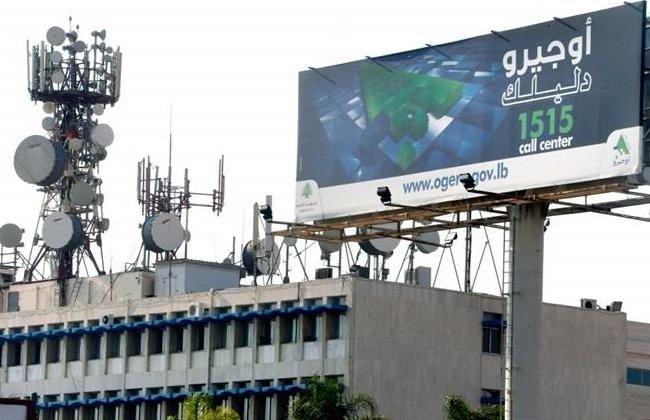Unsatisfactory Services and Lost Opportunities for Lebanese Businesses
Lebanon ranks 123rd out of 138 globally on foreign direct investments and technology transfer, which drives the specialized Lebanese workforce to migrate, instead of attracting capital to Lebanon. In addition, according to the global data gathered by the company Ookla, the average broadband internet speed in the world exceeded Lebanon’s rate by about nine times. As for developed countries, such as Singapore, their speed exceeds Lebanon’s by more than 33 times. Despite the poor infrastructure, which has deprived Lebanese people from using the internet and taking advantage of its benefits, the internet penetration rate in Lebanon remains extremely high, at 76%, indicating countless lost opportunities that have weakened the country’s productivity in front of global competition.
Internet and Mobile Service Monopolies Amount to Huge Financial Burdens on the State
Problems originating from the telecommunication sector are due to the state’s monopoly over the internet grid, which does not provide adequate services to its users, nor does it meet increasing demands. To add, it has prevented companies from installing their own private networks. These private networks would have not only provided better services to customers, but would have also enabled the government to spend this allocated money on a different use. Additionally, the state keeps a monopoly on the mobile services industry and limits the operation to two companies it owns at immense costs, amounting to about $450 million annually, part of which goes to excess employment, amounting to double the required needs. Further to this, the state prohibits any company from investing at its own cost and improving this industry’s services. Instead, it insists that the treasury should be charged with all the burdens.
Successful Programs Abroad Created via Private Sector
Experiences from developed countries in this sector are far different from Lebanon’s, as many countries allowed the private sector to establish its own private network, at its own expense. This resulted in a rapid renewal of the internet grid at no cost to the state treasury. For comparison, private South Korean telecom companies have extensively invested in network maintenance and refurbishment to provide better services, making them a leading country in technological advancement today. Likewise, competition has made the price of internet services drop, allowing it to be more accessible to the whole population. Currently, Lebanon has three international internet cables, compared to Singapore—its size 14 times smaller than Lebanon—which has over 26 lines ; and this is only because the island nation opened the market to all companies wishing to enter and compete, instead of restricting it to the state.
Telecom Sector in Dire Need of All-Around Reforms
To give Lebanon the technological advancement it critically needs, we propose the implementation of the telecommunications law issued in 2002, which aims to liberalize the sector and open the market to competition, as this process has successfully happened in developed countries. Most of the Telecommunications Ministry’s powers are transferred to the Telecommunications Regulatory Authority, whose goal is to motivate companies to enter the market, instead of giving licenses to a specific number of exhibitors. Furthermore, we recommend the liberalization of the process of obtaining international lines of the internet, in order to ensure lower prices and keep pace with the increasing need for greater capacities. We also propose liberalizing the deployment of fiber optic networks inside Lebanon, to deliver internet services at acceptable speeds for companies and the general population. What remains most important of all, is the limitation of the companies’ needs for licensing and monitoring, to the ones that need to use public property to develop infrastructure only. In the absence of the need to own or use of public property, these companies should be allowed to operate without the need for any license.
Telecommunication Industry Invaluable in Modern Times
Today, the telecom sector has become the backbone of growth and progress globally. It connects more than 3.6 billion people with each other across the world and offers countless possibilities in communication, work, and education. Telecommunication contributes to increased business competition and lower prices by improving market transparency and offering more options to buyers. E-commerce sales have increased by 113% globally over the past five years thanks to the internet. Besides this, social media has done quite well in promoting the discovery of new goods and services. A study found that 78% of Facebook users in the United States had identified new goods and services and 55% of them had purchased these through online shopping. In addition, the telecom sector has opened new innovative markets including video on demand, music, electronic payments, transportation, and travel services, among others. Studies indicate that companies such as Uber helped reduce pollution and crowding in many cities, and the telecommunications sector contributed to a remarkable growth in self-employment, which rose by 23% in 2017. Also, one study found that for every 10% increase in internet users, the economy grows by 1.21%.


